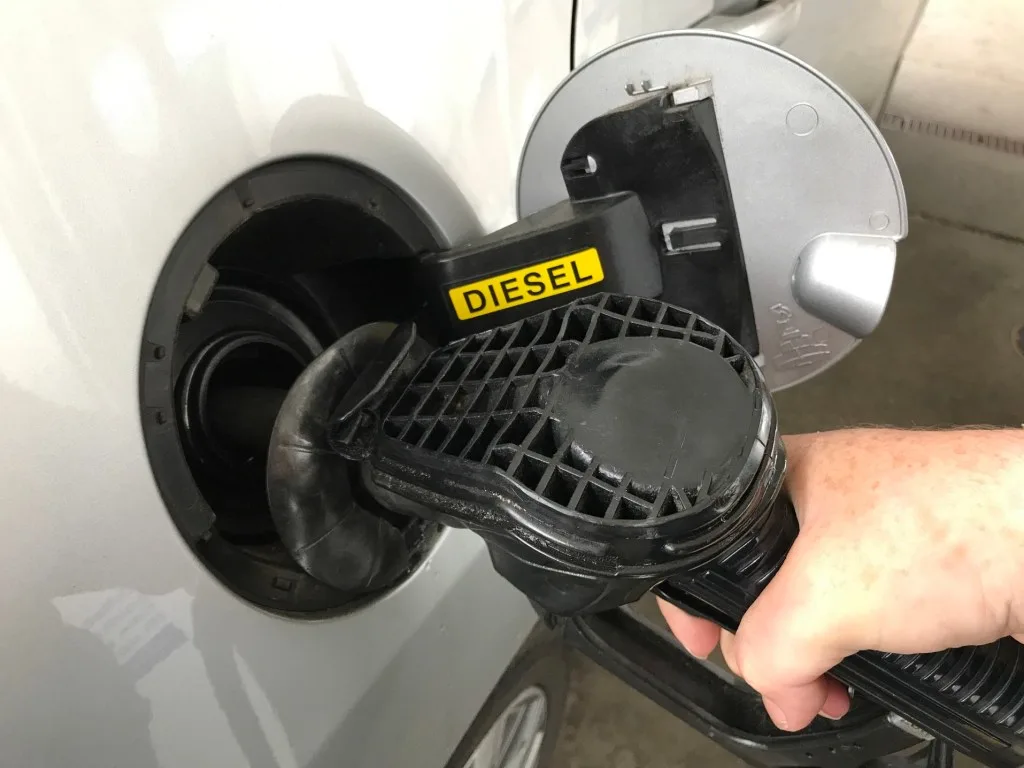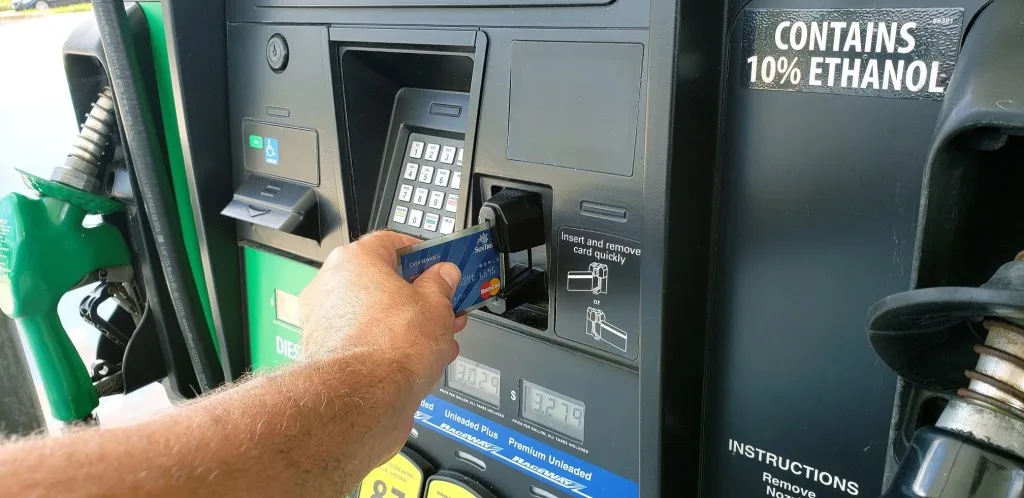There are many benefits to owning a diesel truck, but the price of fuel isn’t one of them. Diesel is an energy-dense fuel that makes it a great option for semis and large trucks pulling heavy loads.
It’s much more efficient than gasoline, but it comes with a premium price tag. With the increased price in fuel lately, many drivers wonder why diesel is more expensive than gas.
So let’s take a look.
What Is Diesel?
In 1892, Rudolf Diesel patented a distillate fuel oil for motor vehicles with compression ignition engines. Diesel fuel is a liquid fuel commonly used in trucks, trains, boats, and barges. It’s also widely used for farm equipment and public transportation.
Diesel fuel is not nearly as flammable as gasoline, and it evaporates very slowly. While the risk of fires is much lower, it can create a dangerous situation if spilled on the road.
Diesel can leave a very greasy surface behind, similar to black ice on the road. For those riding motorcycles and bicycles, this can easily cause them to lose traction.
Pro Tip: We uncovered the secret fuel card that can help every diesel RVer save money.
Why Is Diesel More Expensive Than Gas?
For the most part, Diesel has been a more expensive fuel option than gasoline in recent years. This is primarily due to high federal and state taxes. Federal taxes on diesel is 24.4 cents per gallon compared to 18.4 cents per gallon of gasoline. Some states tack on as much as 74.1 cents per gallon on the state side of the tax.
The demand for diesel is also very different from gasoline. When the economy is growing, the demand for diesel drastically increases. This is because large delivery trucks, machinery, and generators often use diesel. Diesel prices also experience fluctuations due to home heating needs.
The creation of fuel oil and diesel requires similar components, increasing demand, and prices during the winter months. When demand for a product increases, price increases typically follow shortly behind.

When Did Diesel Fuel Become More Expensive Than Gas?
According to the U.S. Energy Information Administration, diesel was cheaper per gallon compared to gasoline up until 2004. After this date, gasoline has consistently been less than diesel.
It’s important to note that the federal government hasn’t raised the federal tax on gasoline or diesel since 1993. Most states have adjusted their fuel taxes multiple times over the past three decades.
Why Is Diesel More Expensive at Truck Stops?
Most truck stops, especially large chains, have worked out deals with trucking companies that provide a massive discount for purchasing in bulk. Many trucking companies will guarantee a certain amount of fuel purchases for a discounted price.
Semi-trucks pull in and buy hundreds of gallons of fuel at a time, which allows the trucking companies to buy in bulk.
The trucking company gets a massive discount, and the truck stop chain sells them the diesel with a much smaller profit margin. It’s a win-win for both the trucking company and the truck stop.

Why Is Diesel Tax Higher?
Much of the revenues generated by diesel taxes go towards taking care of the roads and transportation infrastructure. Heavier trucks will typically create more damage to the road surfaces, and a majority of the vehicles hauling heavy loads are diesel.
Many states attribute their increased diesel taxes to the wear and tear on the roads. However, if you’ve driven on interstates across the country, it’s sometimes hard to see where the tax revenue is going while dodging potholes.
Pro Tip: Spilled some gas on your clothes? Don’t stress! This is How to Get Gas Smell Off of You and Your Clothes.
Is Diesel Cleaner Than Gas?
Many people see the videos of truck owners “rolling coal” and make the wrong assumption that gasoline is cleaner than diesel. However, according to the National Center of Biotechnology Information (NCBI), diesel engines are 25% more efficient and contain 13% more energy than gasoline.
While older diesel vehicles may have created a lot more pollution, there have been many advancements over the past 15 years. The introduction of diesel exhaust fluid systems has helped turn harmful nitrogen oxide gasses into nitrogen and water.
This helps create a cleaner byproduct.
Why Don’t More Cars Use Diesel?
Most car manufacturers have practically zero incentive to use a diesel engine. Doing so would raise manufacturing costs, ultimately raising the price customers are paying. Diesel vehicles also cost more for routine maintenance, which isn’t appealing to most consumers.
Despite diesel vehicles having fewer major issues, it’s typically not cheap when they experience issues. For now, it appears as if most manufacturers have their eyes on lightweight or electric, neither of which are compatible with a diesel engine.
Despite the massive growth in cleaning up diesel vehicles, the general public doesn’t appear interested unless they’re towing something heavy. Whether it’s a semi-truck hauling merchandise to a store or a large passenger vehicle pulling a fifth wheel for a family to make memories, diesel engines play an important role.
Do you own a gas or diesel vehicle? Tell us in the comments!
Discover the Best Free Camping Across the USA
To be honest with you, we hate paying for camping. There are so many free campsites in America (with complete privacy).
You should give it a try!
As a matter of fact, these free campsites are yours. Every time you pay federal taxes, you’re contributing to these lands.
Become a FREE CAMPING INSIDER and join the 100,000 campers that love to score the best site!
We’ll send you the 50 Best Free Campsites in the USA (one per state). Access the list by submitting your email below:
Diesel motors are internal combustion motors with compression ignition. Gasoline motors are internal combustion motors with spark ignition.
[…] Taxes are a significant factor in determining the prices. The federal excise tax on diesel fuel is 24.4 cents per gallon, and gasoline is 18.4 cents per gallon. Since taxes are one of the critical components of ultimate consumer fuel pricing, tax policy significantly influences diesel prices in the United States. […]